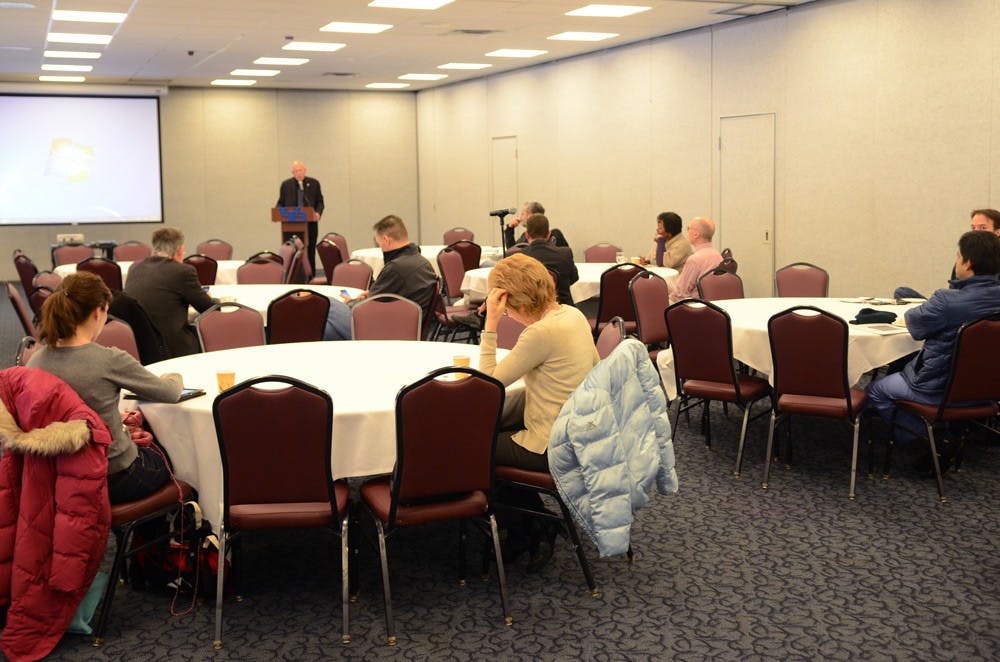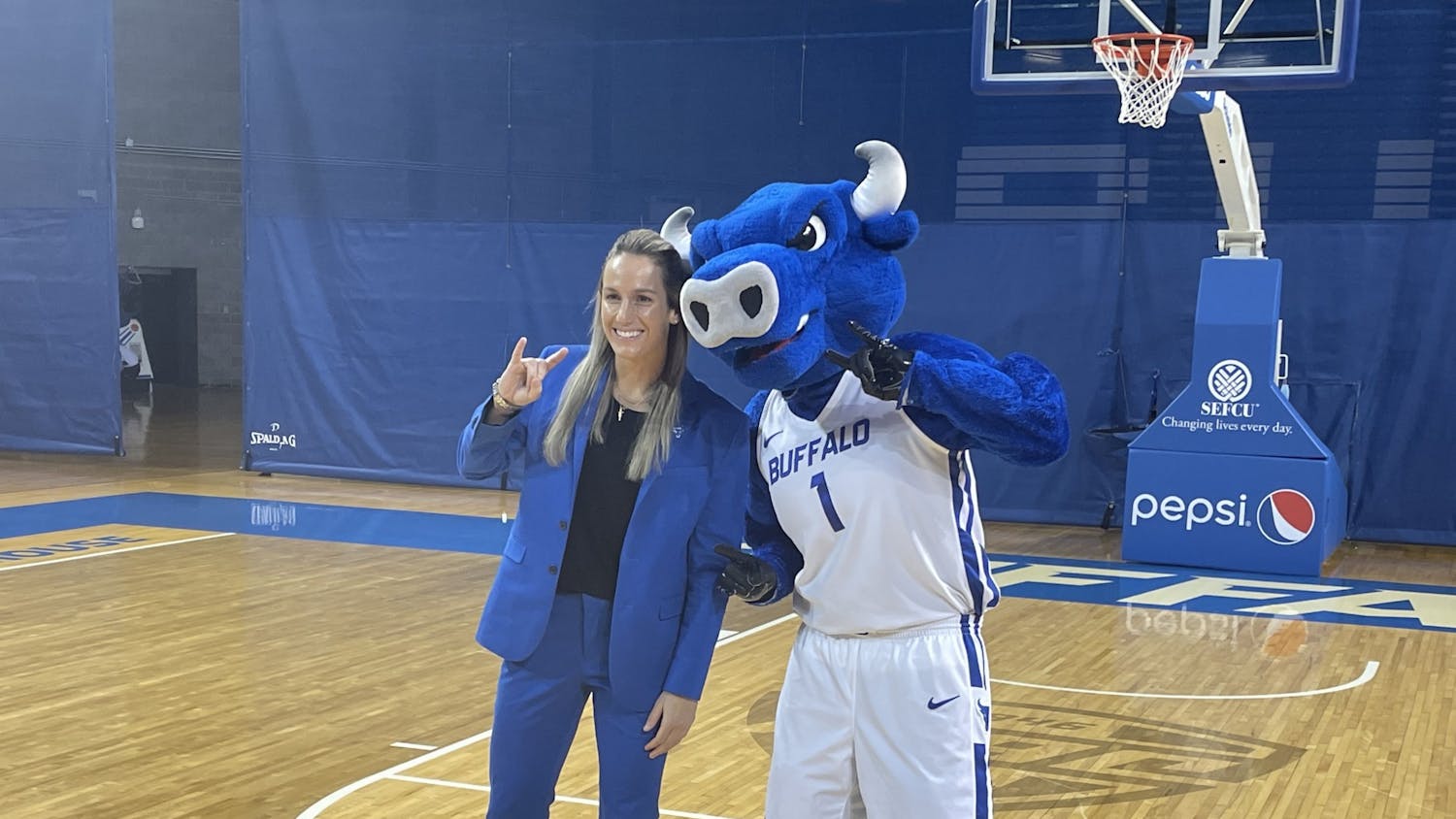Michael Chaskes, a professor in the Department of Medicine, is wondering how “anything is going to get done” at UB with the consistent struggle the Faculty Senate has getting enough members present at a meeting to take a vote.
It’s a problem that’s plagued the body for years. The Senate had enough members present – half the body plus one member – to hold quorum for the first time in at least six years back in December 2013. Since, the Senate has picked up some in attendance, able to function as a voting body throughout this academic year.
But not at its meeting Tuesday when the Senators were considering a new dean review process. The Senate nearly lost its right to vote on the policy. It then became the job of the Faculty Senate Executive Committee to decide Wednesday if the general body could have another shot at quorum on May 5. It voted in favor, but not after discussion of the persisting issue.
“It seems to me there should be a resolution here. What are we going to do with issues where there’s no quorum?” said Chaskes at Wednesday’s Faculty Senate Executive Committee meeting. “The problem is how is anything going to get done at this university?”
Only 35 Faculty Senate members of the minimum 45 needed showed up Tuesday’s general body meeting to approve the new decanal review policy, which aims to make UB’s dean review process more transparent.
The executive committee voted to return the vote to the Faculty Senate instead of taking over the vote itself, but some Faculty Senate members questioned Tuesday if it’s even the committee’s right to do so.
“I don’t know if we can give that power away and say [Faculty Senate Executive Committee] take care of it. I would think it would be violating our bylaws,” said James Holstun, an English professor, at Tuesday’s Faculty Senate meeting.
Holstun said the Senate bylaws state the vote only goes to the executive committee if an emergency comes up in between Faculty Senate meetings.
At the end of Wednesday’s executive committee meeting, Senate Chair Ezra Zubrow asked Senate parliamentarian Richard Gronostajski to speak with the Bylaws committee – of which he is a member – to address the issue of how the Faculty Senate could be “more productive” in instances where there was not a quorum.
Zubrow, who is stepping down as Senate Chair next semester, told Holstun it’s been the standard operating procedure for 30 years to have a vote go to the executive committee if the Faculty Senate does not have quorum, and told Holstun that the two of them have “gone around in circles on this.”
“It is not a grab for power, it’s just to make sure things get done,” Zubrow told the executive committee Wednesday.
Zubrow told the Faculty Senate that he was asking for their opinion on whether it should return to the Senate floor so he could relay the message at Faculty Senate Executive Committee the next day. He also said he, personally, does not have any deep vested interest if the Senate or the executive committee votes on the new decanal review policy.
Cynthia Typick, the Senate’s secretary, said Wednesday she thinks something needs to be done in bylaws to make procedure is tighter or “nothing will get done.”
Chaskes questioned what will happen if the Faculty Senate does not have enough members to vote again on May 5, because he said most of the time the Faculty Senate does not have quorum.
Gronostajski told The Spectrum after the meeting that according to his records, the Faculty Senate had quorum in the February 2015 meeting and in the October, November and December 2014 meetings.
According to the available Faculty Senate meeting minutes posted online, The Spectrum could only verify there was quorum in the Dec. 2, 2014 meeting in which the new general education requirements were voted on and passed. There are meetings in which enough members may be present to vote, but there are no motions on the floor.
Zubrow suggested Gronostajski create a motion with a bylaw committee to change the bylaws to “make sure these problems don’t occur.” He said incoming Senate Chair Philip Glick, who is a professor of surgery in the medical school, should also be involved in the clearing up the continuing confusion of what the bylaws allow or don’t allow.
The next Senate meeting is April 7, but Gronostajski said that a special meeting is already slated to host all faculty members (not just senators) that day. The meeting will focus on addresses made by President Satish Tripathi and Provost Charles Zukowski.
So senators will have to wait until the semester is almost over to know if there will be a new decanal review process – if enough of them show up.
Tom Dinki is the senior news editor. He can be reached at tom.dinki@ubspectrum.com





